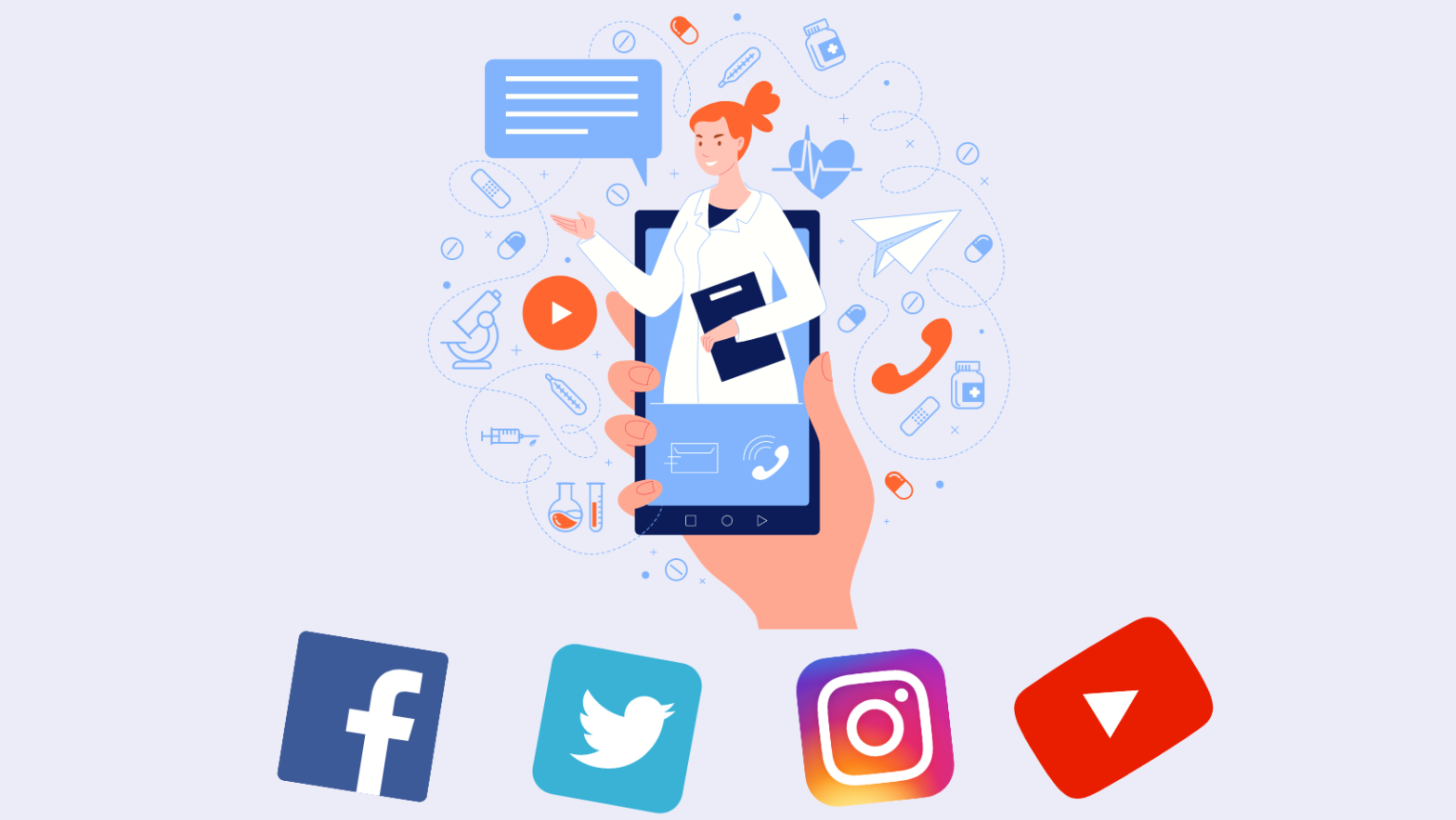- Tread lightly: while social media most certainly does have tremendous benefits for healthcare workers, there are a handful of risks involved.
- We’ll explore the grey area of maintaining professionalism while posting stuff online.
- Discover an overview of best practices related to social media and uncover the advantages and disadvantages of social media for medical professionals.
The Perks of Posting Online on Social Media for Medical Professionals
Spread the Word and Raise Awareness
Medical workers can shed light on the public’s health concerns. They’ll have the inside scoop on all things health and medical-related, which will bring a unique, useful viewpoint to the community.
Nip Misinformation in the Bud
While social media helps the world to find important, fact-based, and concise information at the click of a button, unfortunately, there’s also a lot of misinformation going on. Medical professionals can put a stop to this and debunk myths or falsehoods through social media platforms.
Support Patients
According to an article from Susannah Fox named ‘Digital Health Practices Among Teens and Young Adults: Key Findings,’ almost nine out of ten (87%) teens and young adults (ages 14-22) have gone online searching for health-related information. Another stat from the same study found that roughly four in ten (39%) have tried to find others with similar health conditions as them on social media.
Facebook and WhatsApp support groups seem to significantly help people living with PTSD. A recently published study in the International Journal of Environmental Research and Public Health looked at the effects of Facebook and WhatsApp groups on veterans who have PTSD. Amazingly, the results were quite positive.
Crisis Communication
Nowadays, more and more people get their news from social media instead of newspapers. Social media is the most common source of information for those aged 29 and under, outnumbering all other information sources. As a result, social media is a majorly important way to share breaking news.
Helps Contribute to Research
Social media platforms allow researchers to connect with potential survey and study participants. Just like with brands, researchers and healthcare organizations need to get a clear picture of social media demographics. Mix in social ad targeting options, and you’ve got a perfect formula for connecting with the right audience for studies and surveys.
Maintaining Professionalism in The Workplace – What to Avoid and Dangers of Social Media in Healthcare
Here’s a list of no-no’s that, as a medical professional, we’d advise you to steer clear of within a 50-mile radius:
Distractions and Disturbances: A mind-boggling 78.1% of nurses use personal devices while at work. During a study that tried to find how frequently they use said devices, 38.5 % said they would use them for calling, emailing, and texting.
20.8 % of those polled said they used it to check or post on social media. Keep in mind that not working while you’re supposed to be is time theft. While not technically a crime, it is, however, a fireable offence.
Taking Pictures or Videos of Patients: Now, this may seem like something that’s pretty much common sense, but you’d be surprised to learn how many employees in the healthcare industry actually do this.
You’re probably already familiar with HIPAA, but one of the rules states that you should obtain consent before taking pictures or videos of patients, especially if you intend to post them.
Sharing Patient Stories
Pictures and videos aren’t the only things that violate patients’ privacy. While it may be totally tempting to share the story of you, let’s say, attending to someone famous at work on social media, it is a clear-cut violation of HIPAA rules.
Negativity Or Criticism of Patients and Your Organization
Ranting online about a bad experience with a patient is a strict no-no. That goes for complaining online about your company or practice as well. Anything that paints your organization in a negative light is considered inappropriate.
Forming Personal Relationships
Whether forming a platonic or romantic relationship, developing a relationship with a patient is always a terrible idea. It blurs the line between patient/physician relationships and opens the floodgates to abuse of power (exploitation of the patient’s vulnerability), trouble-making objective decisions, loss of job, and is just overall harmful to the patient’s well-being.
Social Media Best Practices for Healthcare Providers
Here are some social media best practices that medical professionals can follow, courtesy of AAFP.org:
- Be approachable but at the same time professional. Follow the principle, “First, do no harm.”
- Don’t offer medical advice. If need be, only provide general educational advice along with a disclaimer.
- Proceed with caution when making posts about patients. To protect patient identities, be very general or use fictional accounts. Always remember to get consent from your patient if using a real case.
- Be discerning while interacting with patients. Take, for instance, when deciding who to friend or follow on social media.
- Ward off misinformation. There’s a wealth of information online, but not all of it is true. Consider making it your mission to correct and clarify misinformation on social media and help out fellow citizens.
- Follow institutional rules.
- Avoid conflict of interests like the plague. For example, you have to disclose if you’re getting paid for mentioning a particular product or idea on social media.
In A Nutshell
The general consensus for healthcare providers using social media seems to be a jumble of opinions. As we’ve seen, social media for medical professionals offers quite a few benefits, but at the same time, it also poses a major risk for those who don’t abide by the rules and best practices.
Our final verdict? We say go for it, but just make sure to follow the dos and don’ts we listed. We hope you enjoyed this blog post, and please comment below with your answer to the question, “Are you for or against healthcare workers actively using social media and why?”
